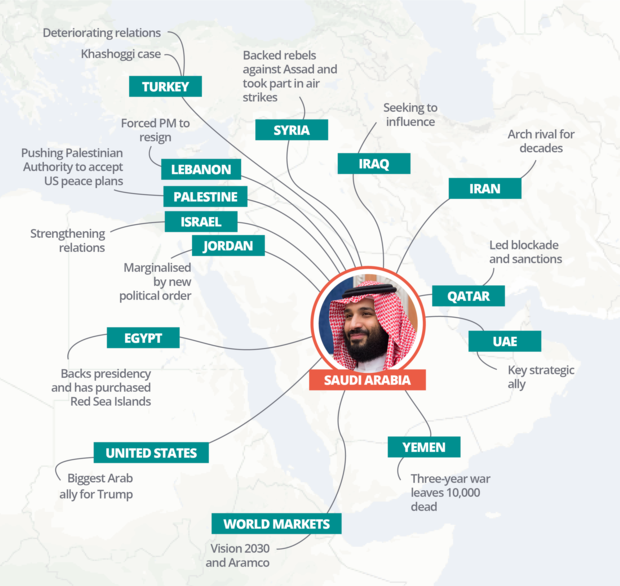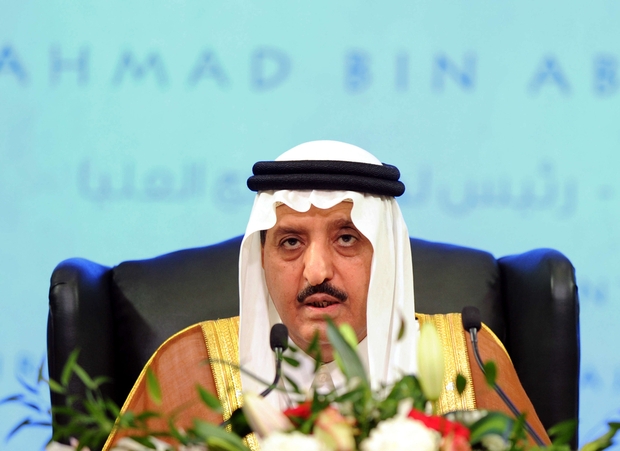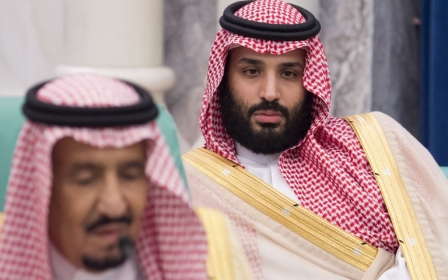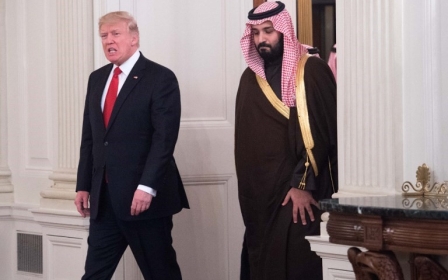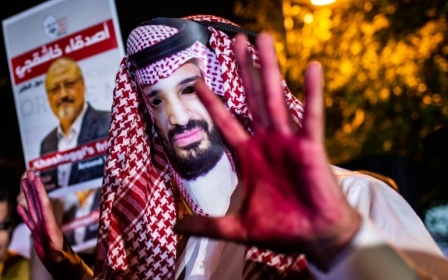Saudi Arabia and MBS: Absolute power, absolute corruption
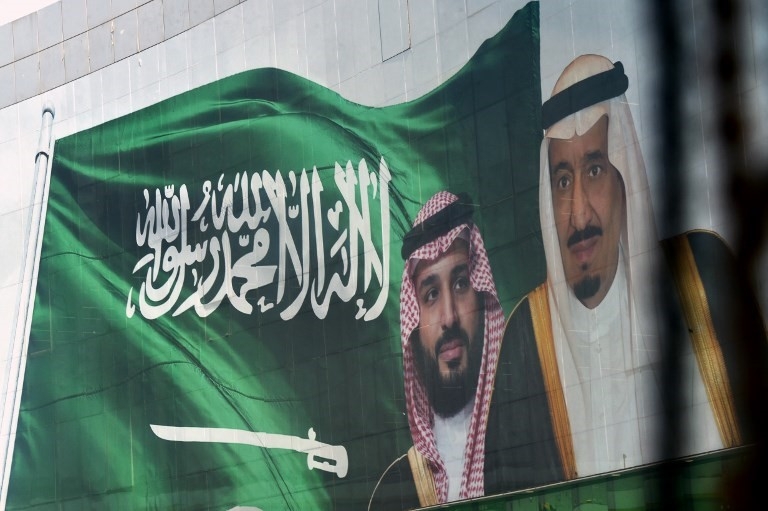
The international media's focus on Saudi Crown Prince Mohammed bin Salman (MBS) as the prime suspect in the murder of Saudi journalist Jamal Khashoggi is understandable and justified. But the attention given to this one person diverts the focus from the structures of naked power in which MBS has been nourished and empowered.
It is the structures of absolute power that have allowed past rulers of Saudi Arabia, MBS, and possibly future ones, to govern with no regard whatsoever to the basic and decent rules of consensual politics. These structures allow MBS to resort to a spectrum of violence, ranging from unjustified detentions, torture in prisons, to murder.
The political context
In the past, MBS has reminded his interviewers that as an Al-Saud royal, he is neither a Gandhi nor a democrat. He unashamedly boasted about his wealth and reminded his interlocuters that he is rich and prosperous. Unsurprisingly, he did not boast about his impunity when he becomes ruthless, uncompromising and reckless.
While the international media continues to condemn MBS, it is time to examine the political context that gave rise to him and his excesses.
The rise of Mohammed bin Salman, or indeed any other prince, to the highest position in government remains the prerogative of one person, namely the king. MBS became crown prince last year as a result of a decision by his father, King Salman. No consultation or consensus was sought to reach the conclusion that MBS was "the right man in the right place", a Saudi saying that people repeat every time the king reshuffles his ministers and bureaucrats.
Just over a year later, his name was to become associated with a scandal that will tarnish Saudi Arabia for a long time.
The rise of MBS, or indeed any other prince to the highest position in government, remains the prerogative of one person, namely the king
It was the sole decision of the king that swiftly brought MBS to the forefront of royal power. The Committee of Allegiance that King Abdullah created in 2007 was completely marginalised, as most of its senior royal members had died. The remaining 33 princes on the committee have been sidelined and several amongst them were detained in November 2017 in the purported anti-corruption operation. They were later released and to this moment remain muted.
King Salman had no equal brothers to consider, fear or respect when he made that historical decision to put his son in charge of the kingdom. He may come to regret this decision.
The last generation
With the exception of marginal Prince Ahmad, King Salman is the last of a generation that controlled Saudi Arabia as communal private property. Previously each of the significant brothers had either extremely important positions in government (for example Faisal, Fahd, Sultan, Naif, and Abdullah), amassed wealth in lieu of rule (Talal), or preferred to live as idle princes passing time between various palaces around the globe.
This was the case for the rest of the royal household, estimated to be over 5,000 individuals. The sons of senior princes such as those of Faisal, Fahd, Nayif, Sultan and Abdullah either became deputies for their fathers during their lifetime when old age took hold over them, or were sent to the provinces as regional governors or given less central roles in the bureaucracy.Faisal’s sons were the face the kingdom projected abroad. Both Saud and Turki Al-Faisal played this role to impress a reluctant and suspicious international community. The first was the foreign minister for over three decades until he passed away, while the second was first the director of intelligence and later ambassador in Washington and London.
Now Prince Turki has been entrusted with the job of charming important constituencies in the US, a role he had previously played after 9/11 when his lectures in academic forums and even churches and think tanks about the tolerance of Saudi Arabia provided much needed propaganda.
When the promotion of a prince does not follow consultation or consensus, a person like MBS will emerge in Saudi Arabia, causing alarm both domestically and internationally
Once again, he is trying hard to diffuse tension in the US after the murder of Khashoggi by arranging meetings with journalists. His eldest brother Khalid Al-Faisal, governor of Mecca, was immediately dispatched to Istanbul after the murder of Khashoggi to hold negotiations with Erdogan.
When the promotion of a prince does not follow consultation or consensus, a person like MBS will emerge in Saudi Arabia, causing alarm both domestically and internationally. When the person does not have proven credentials, like MBS, the situation can result in the consulate crisis.
A vetting process
Saudi Arabia lacks the institutions that can restrain princes behaving badly. Legend has it that King Salman himself used to personally discipline the princes when he was governor of Riyadh for almost half a century. Alas, one prince seems to have escaped parental control.
Without an effective royal family council or an elected national assembly, the king is absolute and his son can and will cause havoc. Saudi Arabia is the last kingdom where the semblance of consultation is non-existent.
Given the dearth of eligible and experienced princes, the king’s nominee to succeed him should be subjected to a vetting process by an elected national assembly, along similar lines as Kuwait's. While this is far from perfect, at least the assembly can voice an opinion and vote when presented by a successor to the emir, according to a democratic process, albeit limited and curtailed.
The veneer of consultation is upheld in this case. Saudi Arabia does not even have this pretence.
A high price
A king in his late eighties has obviously chosen the wrong person for the job of crown prince and he and the rest of the royal family have paid a high price for MBS's arrogance and erratic behaviour.
Saudi Arabia's reputation abroad has never sunk to such depths. We can confidently assume that the murder was an unprecedented self-inflicted crisis, reflecting bad judgement, messy execution and very confused incident management.
The multiple Saudi narratives issued after the murder attest to confusion and a clumsy attempt to cover up the details of the murder, dilute responsibility, and absolve the top leadership from any responsibility. These narratives were definitely not an honest, decent and transparent investigation of a political crime.
The credibility of the leadership inside the country is shaken beyond belief. King Salman’s recent tour of the various regions of the kingdom reflects a desire to restore belief in the monarchy and demonstrate its credibility at a time when his own son is at the centre of a global scandal.
His tour would not be complete without promises of financial projects and rewards to the far-flung provinces that appeared to have been forgotten at a time when all royal effort was concentrated on consolidating the power of MBS. It seems that King Salman is trying to keep the lid on a pressure cooker.
In addition to his father’s full support, MBS still needs regional and international recognition. Hence, his visit to Abu Dhabi, Bahrain and Egypt, followed by an appearance at the G20 meeting in Argentina, will send the right message, namely him being a credible actor on the international stage.
This would not have happened had he not received the full support of US President Donald Trump, who recently dismissed the CIA report about MBS’s involvement in the murder and asserted his full endorsement of MBS.
Trump mentioned a mix of economic and geostrategic considerations for continuing his support. In addition to the $450bn investment promised by MBS, Trump pointed to the centrality of Saudi Arabia in fighting terrorism, containing Iran, and achieving peace with Israel.
With royal pressure non-existent, a weakened Saudi society, and an international community, above all the US, willing to brush aside the murder of Khashoggi, MBS seems secure in his position for now. As the king is not likely to undermine his son’s control of the country in the near future, the real challenge may only come when he passes away.
- Professor Madawi al-Rasheed is a visiting professor at the Middle East Centre at the London School of Economics. She has written extensively about the Arabian Peninsula, Arab migration, globalisation, religious transnationalism and gender. On Twitter: @MadawiDr
The views expressed in this article belong to the author and do not necessarily reflect the editorial policy of Middle East Eye.
Photo: Portraits of Saudi King Salman bin Abdulazziz (R) and his son Crown Prince Mohammed bin Salman (L) are seen on 18 October, 2018 in Riyadh (AFP)
Middle East Eye propose une couverture et une analyse indépendantes et incomparables du Moyen-Orient, de l’Afrique du Nord et d’autres régions du monde. Pour en savoir plus sur la reprise de ce contenu et les frais qui s’appliquent, veuillez remplir ce formulaire [en anglais]. Pour en savoir plus sur MEE, cliquez ici [en anglais].



